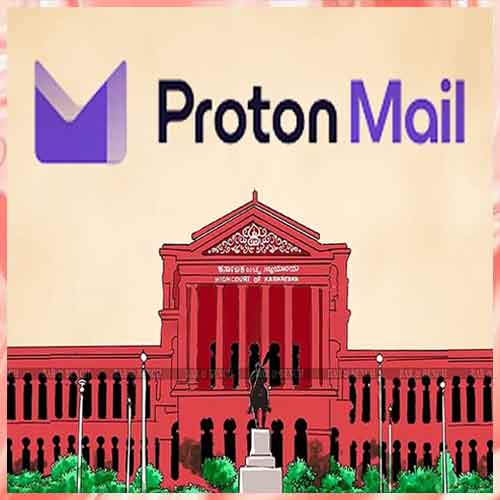
The court directed central authorities to begin proceedings under Section 69A of the IT Act and Rule 10 of the IT Blocking Rules, ordering immediate blocking of specified web links while initiating the broader Proton Mail ban process
The Karnataka High Court has directed the Centre to take legal measures to block access to encrypted email service Proton Mail in India. The directive comes after a Bengaluru-based company, M Moser Design Associates India Pvt Ltd, reported serious cyber abuse involving the platform.
According to the company’s petition, anonymous individuals used Proton Mail to distribute explicit emails targeting a female employee. The emails allegedly contained deepfake AI-generated images and abusive language, and were circulated among her colleagues and clients. Despite filing a police complaint in November 2024, the company claims the investigation stalled due to the lack of cooperation from Proton Mail.
The petition highlighted Proton Mail’s strict privacy practices, which prevent law enforcement from identifying users. Operated by Swiss company Proton AG, the service allows users to register without any identity verification and claims to maintain no operational presence in India. However, the court was informed that users can still select India as a server location, raising questions about its indirect presence in the country.
Court flags national security risk
Justice M. Nagaprasanna, who presided over the hearing, instructed central authorities to initiate proceedings under Section 69A of the Information Technology Act, 2000, and Rule 10 of the IT (Procedure and Safeguards for Blocking Access of Information by Public) Rules, 2009. The judge also ordered immediate blocking of the specific web links mentioned in the petition while the broader process to block Proton Mail is underway.
“A mandamus is issued to Respondents 2, 4, and 5 to issue proceedings in terms of the IT Act and Blocking Rules to restrict access to Proton Mail, considering the observations made,” the court stated.
The petitioner’s counsel, advocate Jatin Sehgal, warned the court that Proton Mail poses not just an individual threat but a broader risk to national safety. He cited recent incidents where Proton Mail was allegedly used to issue bomb threats to schools, underlining the dangers posed by anonymous communication platforms.
Responding to the plea, Additional Solicitor General Aravind Kamath told the court that while the government could begin the process of blocking access, any effort to obtain user data from Switzerland would require a formal request under the Mutual Legal Assistance Treaty (MLAT). He noted that such a request must originate from the investigating officer and be approved by the trial court.
The High Court has reserved its final judgment, which is expected to be issued in the coming days.
See What’s Next in Tech With the Fast Forward Newsletter
Tweets From @varindiamag
Nothing to see here - yet
When they Tweet, their Tweets will show up here.





























